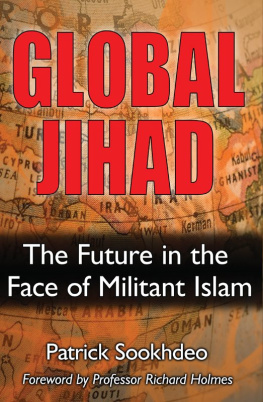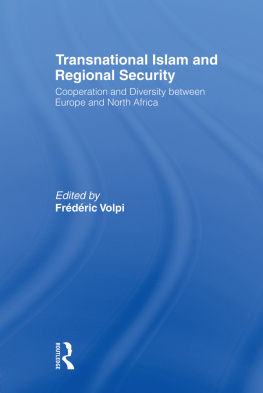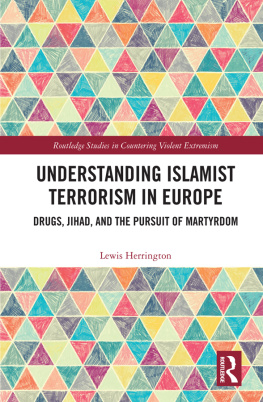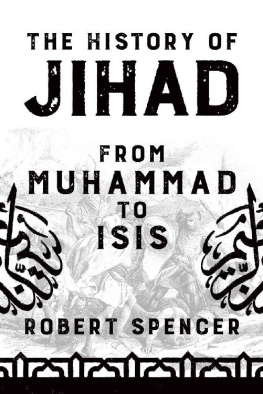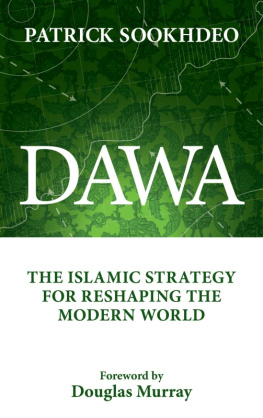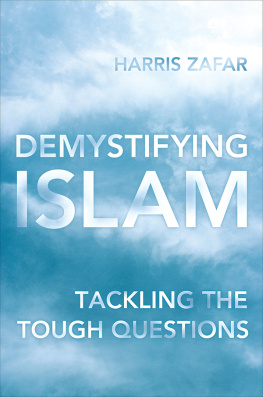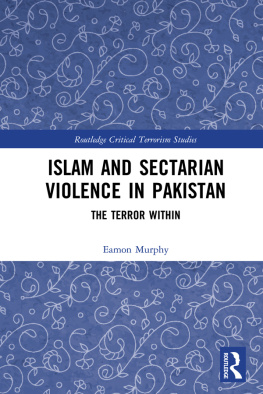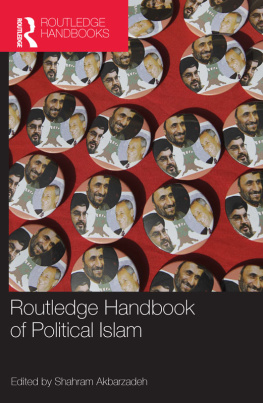
Global Jihad : The Future in the Face of Militant Islam
Published in the United States of America by Isaac Publishing
6729 Curran St
McLean
VA 22101
Copyright 2007 Patrick Sookhdeo
Second Printing, November 2007
All rights reserved. No part of the publication may be reproduced, stored in a retrieval system or transmitted in any form or by any means, electronic, photocopy or recording without the prior written permission of the publisher, except in brief quotations in written reviews.
ISBN 09787141-2-1 978-0-9787141-2-3
ISBN: 9780988593060
Printed in the United States of America
The jihad is the Islamic bellum justum and may be regarded as the very basis of Islams relationships with other nations.
Majid Khadduri
Jihad is the signature tune of Islamic history.
M.J. Akbar
God loves Muslims to be arrogant while fighting. It manifests that he is indifferent to the enemy and determined to vanquish him.
Abdullah Ghoshah
The Prophet (peace be upon him) said: I am commanded to fight with men till they testify that there is no god but Allah, and that Muhammad is His servant and His Apostle, face our qiblah (direction of prayer), eat what we slaughter, and pray like us. When they do that, their life and property are unlawful for us except what is due to them. They will have the same rights as the Muslims have, and have the same responsibilities as the Muslims have. Narrated by Anas ibn Malik, Sunan Abu Dawud, Book 14, Number 2635.
Contents
Index of Quran references
Index of Hadith references
Index
Quranic references are given as the surah (chapter) number followed by the number of the verse within the surah. All are from A. Yusuf Alis The Holy Quran: Text, Translation and Commentary (Leicester: The Islamic Foundation, 1975) unless otherwise stated. Verse numbers vary slightly between different translations of the Quran so if using another version it may be necessary to search in the verses just preceding or just following the number given here to find the verse cited.
Foreword
I have long had misgivings about the phrase global war on terror. Terror defines only some of the tactics used, not the conflict as a whole, and in any case has always been a subjective term. One mans terrorist is anothers freedom-fighter, and my bomber-pilot may be your terror-flier. Moreover, it seems to me that the word struggle, with its notion of a long and obdurate (but sometimes low-key) conflict, fits the reality of the situation much better than war, too often seen as embodying a clash between armed forces. Call it what we will, though, I believe that Patrick Sookhdeo is absolutely right to see the struggle as being both global and long-term, and to identify the importance of militant Islam as its philosophical mainspring.
The real merit of his book is to make the ingredients of that militancy clear, particularly to members of a largely secularised society whose own toleration induces them to ignore or doubt the corrosive intensity of the beliefs of some others. The worldview and strategic objectives shaped by these beliefs are well set out in the pages that follow, and Dr Sookhdeo carefully explores the various meanings of jihad and warns of the way in which Islamist apocalyptic discourse is rife, especially on those internet sites which have such a great impact, particularly on the young.
One of the most serious problems confronting us is that our own strategic view is lamentably vague: we burble genially about things that we admire, like democratic values, free market economies or the rights of women, but find it hard to translate these general desiderata into practical policy. For instance, any meaningful policy in Afghanistan must address the issue of the poppy crop from its very inception, for it is an inescapable truth of counter-insurgency that armed force is never, by and of itself, more than part of the solution to a complex, multilayered problem. This has been clear to theorists and successful practitioners for at least a century, and it is disturbing to find simple truths belatedly rediscovered. Where no genuine strategy exists, we compensate, as far as we can, with tactical or technical excellence, as if we imagine that by winning a series of battles we must inevitably win the war as well. In practice the reverse is often true, for too often we score short-term successes by doing things that are likely to make our ultimate defeat more likely. For instance, whatever advantages may have been gleaned from Guantanamo will, in the long term (and this is a conflict in which the long term really matters) be submerged by the fact that the places very existence helps spawn a mass of radicalised young men eager to avenge injustices inflicted on their brothers. In the context of a conventional war against Saddam Hussein the entry of US tanks into Baghdad seemed the very icon of victory. Yet to thousands of Muslims, many of whom had neither affection for Saddam nor real quarrel with the West, it was a symbol of unspeakable humiliation. We are tactics-driven but somehow strategy-lite.
In contrast, our opponents are far less good at winning battles and engagements. In Iraq, for example, the rise of the suicide bomber paralleled the bloody defeat of militias, who shot a lot but hit a little, in dozens of small actions. If coalition forces make a premature withdrawal from Iraq or Afghanistan, it will not be because they have lost a modern Dien Bien Phu, some decisive clash that breaks their armies. It will be because their civilian populations, not persuaded that these are life and death struggles in which the real national interest is engaged, will have their confidence fatally eroded by a constant trickle of casualties which units in the field will find painful (for it is never pleasant to have valued comrades killed and wounded) but, in the context of the job they trained to do, tolerable. Failure will be strategic, not tactical. Had the Americans in Iraq displayed, three years ago, the acumen and cultural understanding they now exhibit, then things might be very different. However, I cannot imagine a would-be US president or British prime minister entering an election announcing that his (or, indeed, her) policy for Iraq is rather more of much the same.
In contrast, while our opponents have tactical weaknesses, they have enormous strategic strengths, and this book helps us understand why. Al Qaedas war aim is complete victory over infidel powers and the establishment of the Islamic caliphate. The war will be prosecuted by a one thousand wound policy which will pit Muslim patience and endurance against Western demands for quick solutions and easy answers. While recruits to conventional armed forces are motivated by a variety of motives, pay and pensions amongst them, recruits to Islamic militant groups enter a world where their rage is directed, channelled and given a sense of purpose and an outlet. Conventional armed forces are shackled by rules of engagement and the law of armed conflict. How can they not be, given the primacy of law in the societies which produce them, and the recognition that the effects of illegal action are often counter-productive? In contrast, one of Al-Qaedas training manuals justifies the torture or murder of hostages, using a version of Islamic teaching to justify itself.
Patrick Sookhdeo concludes that to gain ultimate victory over the Islamists will require the exercise of the will and a right understanding of the situation. Do those engaged in such a task have the necessary will to achieve the end required, he asks. Do they properly understand what they are up against? In most cases they do not. We believe that truths that seem so self-evident to us must be as appealing to others. Our cultural arrogance makes it hard for us to grasp the very real appeal of, say, a Sadrist militia in Iraq or the Taliban in Afghanistan. We confuse tactics with strategy: current fascination with exit strategy from Iraq demonstrates all too clearly that we do not understand that strategy is not a short-term expedient. Lastly, we seem reluctant to explain to our own population, which lies in the very pit of our stomach for the fight, why the struggle matters to us. There is no such intellectual vacuum amongst our opponents.
Next page
